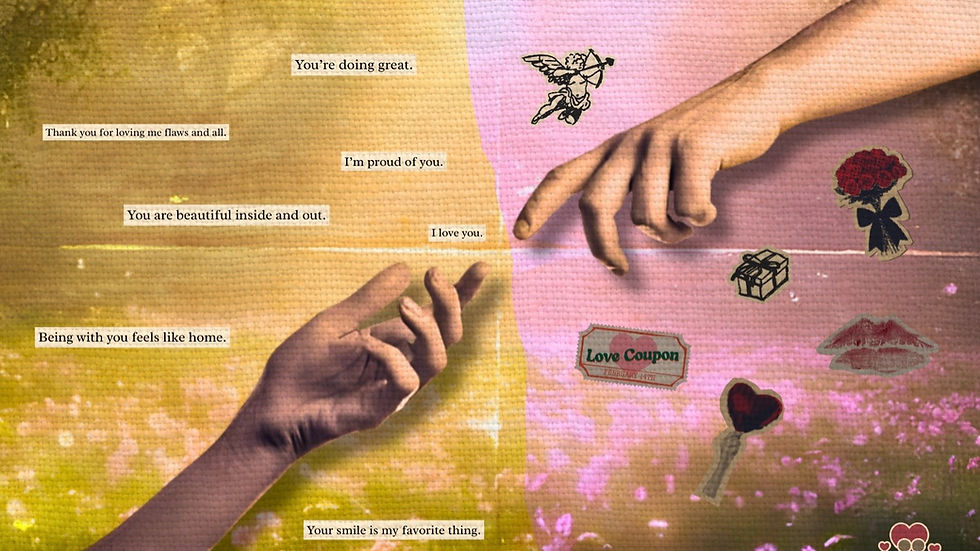FEATURE | Surviving Finals Season: How to Avoid Becoming the Dead Weight in Group Works
- The Communicator
- Jan 29, 2025
- 3 min read
“Ala-una ng gabi, tulog na ang lahat ako lang ang gising!”

It’s the finals season once again and this is the usual scene for every student—papers scattered on the desk, countless cups of coffee, and a laptop running on overtime. The house is quiet, but students are battling with deadlines and projects. However, did you know the biggest challenges during this time? Group works.
In a world where every student wishes to exist, group works should be light, organized, and fair. But in reality, it’s hard to avoid having someone in the group who becomes a burden. We call them “dead weights”—the ones who make group works a different kind of torture.
First, there’s The Ghost—the ones who vanish after the tasks are assigned, leaving you wondering if they are just irresponsible or if they’ve already dropped out of the class.
Then there is The Excuse Machine, who always have a never ending supply of reasons why they couldn’t get their part done: “My laptop broke,” “My internet is down,” or the classic, “I didn’t know we had a meeting!” Their only contribution? The endless apologetic messages.
And of course, the most popular, The Bare Minimum Champion—the one who proudly submits their part which is often AI-generated, or volunteers to help but only changes the font and color palette of the presentation. In the end, all the work falls on a few members—usually the ones who sacrifice sleep, skip meals, and carry the entire weight of the project. It’s hard to speak up, especially when the groupmate causing problems is a friend, but you can’t help but ask yourself: “Is this still fair?”
The question is, how does this dynamic impact students who are already overwhelmed with academic responsibilities? How can group work be managed effectively without sacrificing the physical and mental health of every member? It’s a mess that every student seems to endure, but it doesn’t have to be this way.
Here are some tips on how you can avoid being that group mate and ensure your team doesn’t crumble under pressure based on the collective experiences of every student:
Communicate, Communicate, Communicate - Use your group chat actively, but keep it professional. Keep your team updated about your progress, even if it’s struggles, it’s better to let them know and communicate early so others can help instead of seeking for your presence and being blindsided.
Manage Your Time Wisely - Procrastination is the enemy of good teamwork. When the tasks are assigned, break it to smaller parts and set deadlines for yourself. You can use tools such as Google Calendar or Notion to stay organized.
Show Up and Contribute - Half the battle is just showing up—show your team that you are committed. Attend all meetings whether it’s a physical meeting or an online meeting, let your team know that you are willing to help.
Stay Organized - It is crucial to use to-do lists, planners, and calendars. These tools can help you maximize your productivity. Keeping track of your work and the deadlines could ease your workload and reduce procrastination.
Be Respectful of Everyone’s Time - Avoid last-minute changes or unnecessary delays. Respect deadlines and other people’s schedules by being punctual and reliable.
Avoid Distractions - Stay away from things or anything that might lose your focus while you are doing your part in your groupworks. Creating a strict schedule will build your self-discipline.
Know your Strength, Admit your Weakness - There’s nothing wrong in admitting what areas you are lacking to position yourself in a task that you will surely be productive, to contribute in your groupworks.
The bottomline is we all have personal struggles that we’re trying to navigate and solve on our own. All of us face our ups and downs throughout the college journey, and acknowledging our struggles, or as simple as thinking about the situation of our groupmates, is the little push we need to contribute to group work.
Despite all of this, we must not be selfish and ignore the responsibilities that we need to accomplish in order to complete the task needed for the final requirements. No one deserves to sacrifice their personal time because some choose not to do their part. It is just inhumane to chill while the others are carrying the burden the dead weight students left.
Remember, everyone is going through something in life, but some of your groupmates still chose to set aside their personal struggles to fulfill the parts they have, ensuring that the output is quality and not crammed. This is why “teamwork makes the dream work”—a functional group makes the workload easy to carry at an average speed.
Article: Ernest Cruz, Jae Juson, and Xyra Zaleta
Graphics: Keren De Leon




Comments